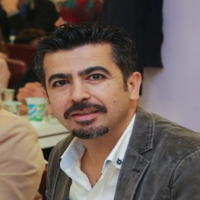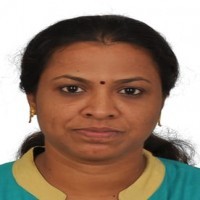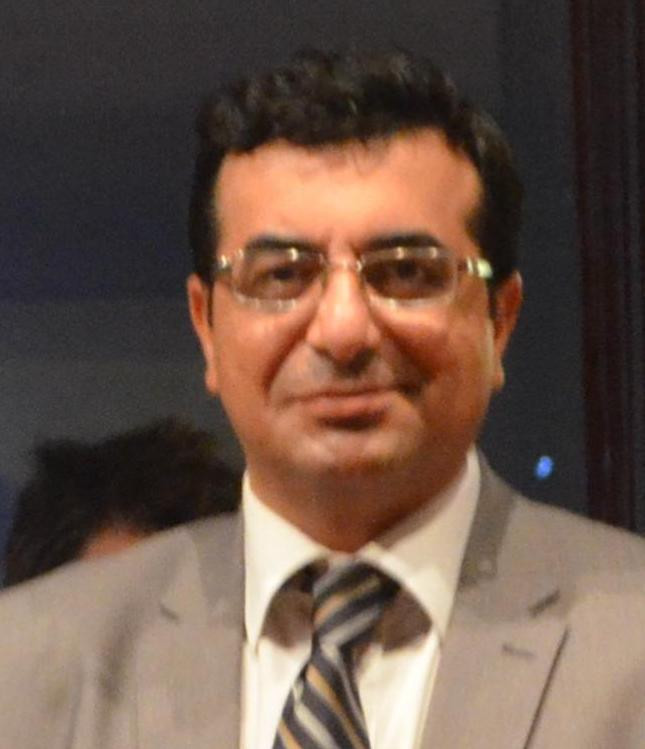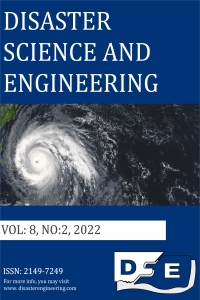Research Article
Aim & Scope
Disaster Science and Engineering (DSE) publishes both theoretical and practical articles, including case studies and reviews in the field of disaster science and engineering to be considered within the scope of Civil Engineering and Earth Sciences, including but not limited to the following titles.
• Chemical, Biological, Radiological and Nuclear Risks
• Climate Change
• Coastal and Harbor Engineering
• Computer and Information Technology on Disasters
• Disaster Management
• Disaster Logistics Planning and Coordination
• Disaster Sensitive Urbanization
• Eartquake
• Earthquake Source Physics
• Earthquake Risk Mitigation Policies
• Economical and Social Impacts of Earthquakes
• Earthquakes and Architecture
• Geotechnical Earthquake Engineering
• Global Climate Change
• Hydro-Meteorological Disasters
• Information Technology in Earthquake Studies
• Lessons Learned from Past Earthquakes
• Natural Hazards Caused by Earthquakes
• Paleoseismology
• Risk Analysis and Disaster Management in Natural Disasters
• Seismology/Seismotectonics
• Seismic Hazard Analysis
• Seismic Design and Analysis of Structures
• Seismic Safety of Historical Structures
• Seismic Networks
• Seismic Wave Analysis
• Site Effects and Microzonation
• Seismic Performance of Non-Structural Components
• Seismic Risk, Loss and Resilience
• Seismic Strengthening and Retrofit
• Seismic Testing Procedures
• Seismic Design Codes
• Seismic Isolation and Vibration Control
• Soil Problems
• Soil Dynamics and Earthquake Engineering
• Transportation Engineering and Disasters
• Transportation Network Security and Reliability
• Tsunami
• Urban Planning in Earthquake Prone Regions
• Water Resources and Hydrologic Engineering
Author Guidelines
Ethics in Publishing
DSE pays attention to ethics in publishing in all levels. All articles submitted to the journal should be prepared by considering the internationally recognized ethical guildelines. Author(s) can get more information on publishing ethics from Committee on Publication Ethichs (COPE) website (https://publicationethics.org).
The Journal of Disaster Science Engineering (DSE) uses the iThenticate and/or Turnitin softwares to determining for plagiarism in the text of submitted manuscripts. If the similarity ratio detected before publication exceeds 20%, the article is rejected before the referee evaluation process is initiated. Even if a manuscript is below %20, it will be declined if it breaches the academic code of conduct by intentional misuse of references, wrong citations and other forms of plagiarism. Similarity report should be uploaded with the manuscript.
Language
• Articles should be prepared in Turkish or English.
• Simple and passive sentences should be used in writing.
Language
The manuscript template can be downloaded from the following link.
Manuscript Template (.docx)
Copyright form of the manuscript can be downloaded from the following link.
Copyright Release Form
Articles should absolutely contain 'Conflict of Interest' and 'Author Contribution' sections, respectively, between 'Conclusion' and 'References' sections. The contents of those sections should be compatible with the information given by authors in forms of 'Declaration of Conflict of Interest' and 'Declaration of Author Contribution' additionally submitted during the initial manuscript submission. In writing 'Conflict of Interest' and 'Author Contribution' sections, please follow the format given in the 'template'.
Page layout
Articles should be prepared in accordance with the sample article format.
Author(s) should use these specific styles for each part (for example title, abstract, keyword etc.) of the manuscript.
Author(s) should provide both Turkish and English versions of the title, abstract and keywords.
Abstract section of the manuscript should be between 100 and 300 words.
Paragraphs should not start with indentation.
The full name(s) of the author(s) should be given. In addition the e-mail address(es), affiliation(s), and ORCID's of all author’s should be provided. The telephone number of the corresponding author should be written.
Keywords should start with a bold “Keywords” title and should not exceed six keywords. Each keyword should be separated with comma symbol.
The citations should be given in Chicago Manual of Style 16th Edition (author-date) style. Authors can get help from citation management applications/tools when preparing their papers. The title of the citations section should be “References”.
In text citations should be writeen like (Doğan et. al.2009; Ateş et. al. 2019; Göktepe and Keskin, 2018; Keskin, 2013).
Equations should be aligned centered. Equation number should be written inside paranthesis and placed to the right side of the equation, aligned right in the page. Equations should be cited with their full name like “As seen in Equation 1” or like “As seen in Equations 3 and 4”.
Tables should be centered in the page. Table number and caption should be written above the table. Tables should be cited with their full name like “As seen in Table 1” or like “As seen in Tables 3 and 4”.
Figures should be centered in the page. Figure number and caption should be written below the figure. They should be cited with their full name like “As seen in Figure 1” or like “As seen in Figures 3 and 4”.
Ethical Principles and Publication Policy
PUBLICATION ETHICS & MALPRACTICE STATEMENT
Publication ethics are kept in the course of publication processes in Disaster Science and Engineering (DSE) (e-ISSN: 2149-7249) to assure the best practice guidelines and hence it is crucial for the journal’s editors, authors, and peer reviewers to abide by the ethical policies.
Disaster Science and Engineering (DSE) conforms to the principles below that are described by COPE’s Code of Conduct and Best Practice Guidelines for Journal Editors (https://publicationethics.org/resources/code-conduct) and not only transparency principles, but also best practice in scholarly publishing pointed out by the Committee on Publication Ethics (COPE).
Duties of Editor-in-Chief & Section Editors
Objectivity
Editor-in-chief & section editors of the journal are account for deciding which of the manuscripts submitted to the journal ought to be published. In this process, the authors of the manuscript are not distinguished based on his/her race, ethnicity, gender, religion and citizenship by the editors. Editors´ decision to accept, revise or reject a manuscript for publication should be based merely on the importance, originality and clarity of the manuscript, and also convenience of the study performed in manuscript to the coverage of the journal.
Confidentiality
Editor-in-chief and section editors staff must not reveal any information about a submitted manuscript to anyone but the corresponding author, reviewers/potential reviewers and the publishing personnel. Editors will assure that all material submitted by authors remains confidential during the review process.
Conflicts of interest & Disclosure
Unpublished materials disclosed in a submitted manuscript must not be utilized in any reviewers’ own studies without expressing written permission of the author. Exclusive information or opinions attained from peer review process must be maintained confidential and not used for personal benefit. Reviewers ought not to take into account manuscripts in which they have conflicts of interest deriving from competitive, collaborative or other relationships/connections with any of the authors, companies or institutions linked to the articles.
Peer review process
The editor-in-chief/section editors must assure that a double-blind peer review process is effectively performed for each manuscript submitted to journal system.
Management of unethical behaviour(s)
The editors, together with the publisher(s), should take rationally responsive measures when ethical complaints have been presented regarding a submitted manuscript or published article.
Duties of Author(s)
Authorship of the paper
Authorship should be narrowed to those who have made a vital contribution to the reported study including conception, execution, design and interpretation. All authors made significant contributions to the submitted manuscript should be listed as co-authors.
Originality and plagiarism
The authors are responsible for the content, language and originality of the manuscript they submitted. The authors should assure that they have composed their original works entirely, and if the authors have used the study and/or words of other authors, that this has been conveniently cited or quoted. Plagiarism takes many forms varying from “passing off” someone´s paper as the authors’ own paper to copying or paraphrasing important parts of someone´s paper (without attribution), to claiming results from research performed by others. Plagiarism in all its forms comprises unethical publishing behaviour and is inadmissible. Before being sent a manuscript to reviewers, it is checked in terms of similarity by iThenticate to explore the plagiarism.
Acknowledgement of funding sources
All funding sources for the research reported in the manuscript should be acknowledged thoroughly at the end of the manuscript before references.
Disclosure and conflicts of interest
All authors should reveal in their manuscript any financial or other substantive conflict of interest which may be construed to affect the findings or interpretation of their manuscript. All financial support sources for the project should be disclosed as well. Disclosed examples of potential conflicts of interest include employment, consultancies, stock ownership, honoraria, paid expert testimony, patent applications/registrations, and grants or other funding. Potential conflicts of interest should be declared at the earliest stage possible.
Reporting standards
Authors of manuscript should present an accurate explanation of the study conducted and an objective discussion of its importance. Underlying data should be accurately given in the manuscript. A paper should include sufficient detail and references to allow other researchers to repeat the study. Tricky or knowingly imprecise statements form unethical behaviour and are unacceptable. Review and professional publication articles should also be precise, original and objective, and editorial opinion works should be described overtly as such.
Data access & retention
Authors might be asked to ensure the raw data in connection with a paper for editorial review process, and should in any event be prepared to keep in such data for a moderate time after publication.
Multiple, redundant or concurrent publication
Submitted manuscripts must not be under consideration of any other journal. Submitting the same manuscript to more than one journal concurrently comprises unethical publishing behaviour. The authors must also assure that the article has not been published elsewhere before.
Principal errors in published studies
When an author corresponds to a significant error or inaccuracy in his/her own published work, it is the author´s obligation to notify swiftly the journal editor or publisher and cooperate with the editor to withdraw or correct the paper.
Duties of Reviewers
Reviewers should review and send the review comments in due time period. If the manuscript is not in the reviewer’s field of interest, then the manuscript must be sent back to editor so that the other reviewers can be assigned without losing time.
Contribution
Reviewers are the main members contributing to the quality of the journal being a peer reviewed one. The reviewers who feel unqualified to review the received manuscript must swiftly notify the editor and reject to review that manuscript.
Confidentiality
Any manuscripts received for review must be treated as confidential documents. They must not be shown to or discussed with others except as authorized by the editor.
Objectivity standards
Reviews should be objectively performed. Personal criticism of the author is unsuitable. Referees should frankly express their aspects with supporting arguments.
Acknowledgement of sources
Reviewers should describe relating published study which has not been cited by the authors. Any statement that an observation, derivation, or argument had been previously reported should be accompanied by the relevant citation. A reviewer should also point out to the editor’s attention any vital resemblance or coincide between the manuscript under consideration and any other published paper of which they have personal information.
Disclosure & conflict of interest
Reviewers should not take into account the manuscripts in which they have conflicts of interest derived from competitive, collaborative, or other relationships/connections with any of the authors, companies or institutions linked to the manuscripts.
Price Policy
Disaster Science and Engineering (DSE) does not charge any fees to its authors or readers in any way.
Indexes
Citation Indexes
Journal Boards
Editor-in-Chief

Assistant Editors





Editorial Board














